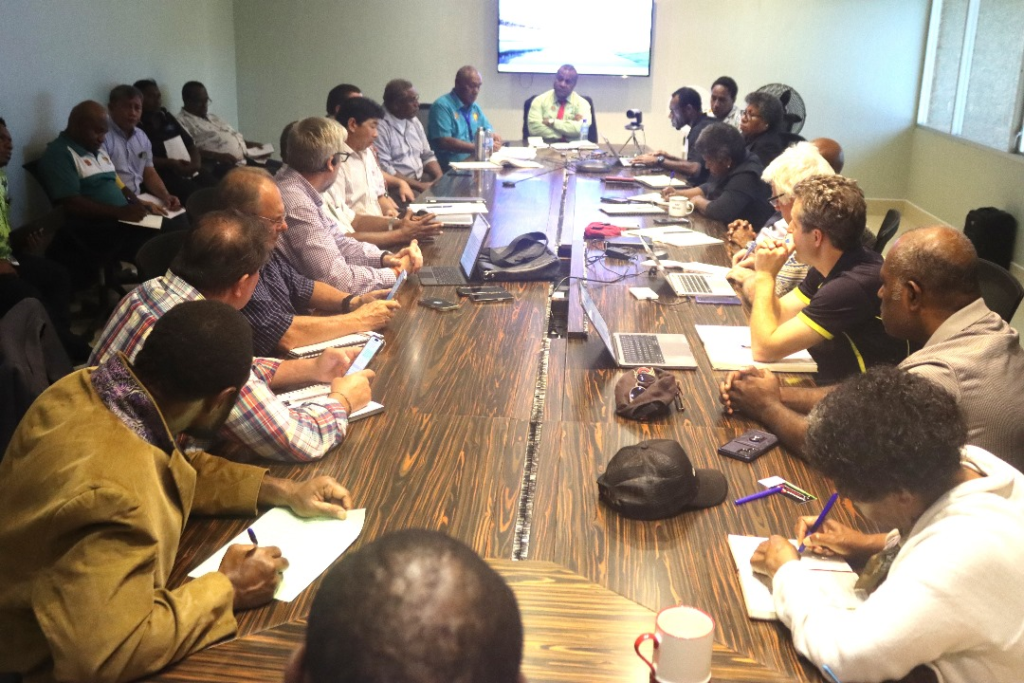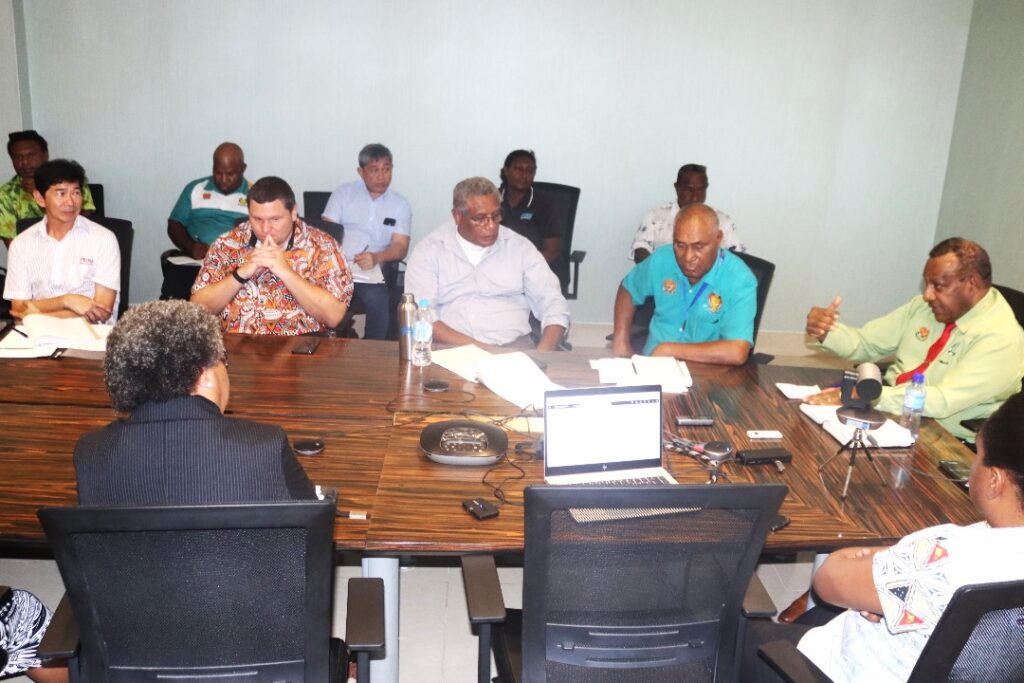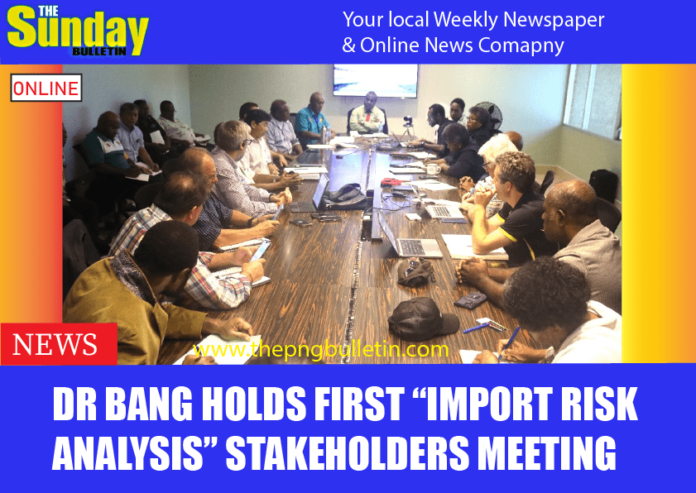THE Secretary for the Department of Agriculture and Livestock (DAL), Dr Sergie Bang, in collaboration with the National Agriculture Quarantine and Inspection Authority (NAQIA), commenced the first high-level meeting with stakeholders to progress import risk analysis for potential market access of deboned fresh meat from Brazil, being a prominent South American producer and global trade supplier.
Secretary Bang said that the important risk analysis process was required by binding international trade rules and standards, pursuant to the Agreement on the Application of Sanitary and Phytosanitary Measures (SPS) of the World Trade Organization (WTO).

“The process has been initiated in response to a formal request from the PNG industry to assess hazards that may potentially be associated with importation of mechanically deboned meat (MDM) of poultry for manufacturing and deboned beef cuts from Brazil,” the Secretary said.
He said Papua New Guinea is currently unable to meet its domestic demand for these products through local production.
To address this issue, appropriately managed market access assessments and arrangements are crucial.
These measures are essential to mitigate significant biosecurity threats that could arise from illegal imports attempting to satisfy domestic demand.
Additionally, they support PNG-based industries that employ many citizens and help tackle food security challenges.

Dr. Bang stated that Papua New Guinea currently does not permit the importation of any uncooked meats from Brazil.
A team from the NAQIA has been conducting the initial technical risk analysis.
In 2023, NAQIA, along with private sector representatives, visited Brazil to inform the assessment process.
Additionally, a delegation from the Canberra-based Brazilian Embassy visited PNG in the last week of June 2023 to advance talks on cooperative assistance between the two countries, specifically in the agriculture sector.
This matter was also discussed at the Government-to-Government level during their visit.
“This is a crucial follow-up to those talks and, especially, a response to the requests from both the PNG private sector and official representations from the government of Brazil.” Dr Bang said.
He stated that PNG has well-established conditions and arrangements for importing fresh, chilled, or frozen chicken meat from Australia and New Zealand, based on previous import risk assessments, however, imports from Australia are currently restricted due to an outbreak of Highly Pathogenic Avian Influenza in two Australian states during 2024.
For chicken meat from other countries, appropriate import risk assessments (IRA), technical conditions, and management arrangements must be completed before access to the PNG market can be considered.
Dr. Bang emphasized that if access is deemed safe following technical assessments, it will still be subject to ongoing pest and disease situations in the respective source countries.
This approach aligns with international trade standards and obligations. The government will not compromise PNG’s high biosecurity status or the future development and competitiveness of local industries for the sake of trade and market access.
Dr. Bang explained that the Import Risk Assessment (IRA) involves identifying and assessing all potential biosecurity hazards associated with the entry, host exposure, establishment, and spread of pest or disease agents that could be introduced into Papua New Guinea through the market access of such products. This comprehensive assessment is vital for ensuring the protection of PNG’s biosecurity status.
“It is a fundamental pre-requisite of the SPS Agreement that decisions for permitting or prohibiting trade access of agricultural commodities and any corresponding biosecurity risk management conditions or specifications applicable to permit trade access, must be based on objective technical assessments and must involve comprehensive and transparent stakeholder consultations to avoid discrimination.
“The standards respectively of the World Organization for Animal Health (WOAH) (for animals and animal products), the International Plant Protection Convention (IPPC) (for plants and plant products) and the Codex Alimentarius Commission (CODEX) (for food safety) provide authoritative and informative technical guidance and the foundation for productive risk management and stakeholder engagement.”
Following this initial stakeholder dialogue, a stakeholder committee is being appointed to expeditiously progress the import risk assessment and stakeholder engagement processes to an appropriate conclusion.

